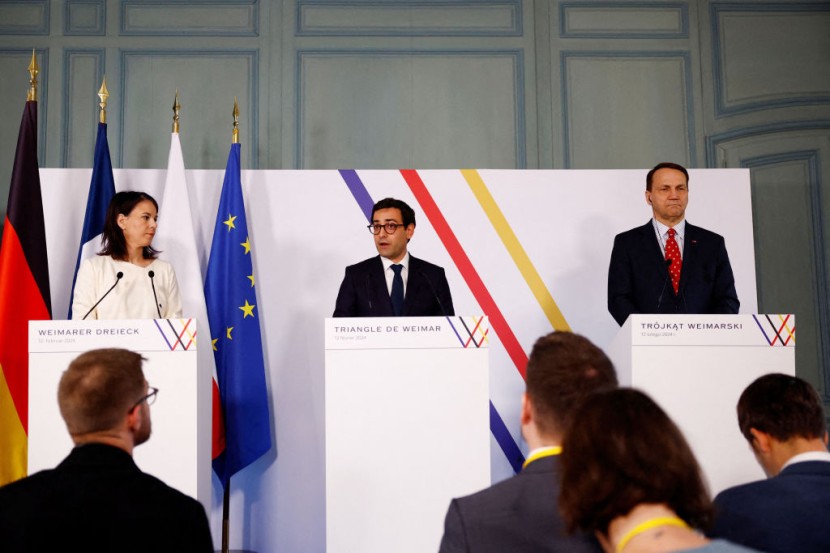The foreign ministers of France, Germany, and Poland expressed their desire to collaborate in addressing the issue of Russian disinformation. They pointed out the importance of working together to counter these efforts.
During a meeting in La Celle-Saint-Cloud near Paris, French Foreign Minister Stéphane Séjourné stated that three countries have reached an agreement on a joint warning mechanism to counter Russian troll attacks. The meeting included German Foreign Minister Annalena Baerbock and Polish colleague Radosław Sikorski, as per Yahoo News.
Viginum Reveals Pro-Russian Disinformation

Cybersecurity researchers from Viginum have exposed a sprawling online network named "Portal Kombat," comprising at least 193 sites disseminating pro-Russian propaganda. The disinformation campaign primarily defends Russia's invasion of Ukraine and criticizes the government in Kyiv. The mass dissemination of misleading information, identified and analyzed between September and December of the previous year, has been traced back to Moscow.
The disinformation network utilizes various platforms, including social media sites and messaging apps, to target individuals propagating conspiracy theories. Researchers noted a pro-Russian channel on the French Telegram app publishing up to nine articles per hour. The scale and sophistication of the campaign prompted the European Commission, NATO, and UN agencies to recognize disinformation as a significant threat to democracy in 2024.
During a high-level conference in Brussels, a senior NATO official categorized disinformation as a "national security issue," acknowledging the potential for hybrid attacks that employ disinformation to escalate to the level of an armed attack. The UN's communications secretary general, Melissa Fleming, emphasized the impact of disinformation on creating suspicion and hatred, undermining peacekeeping efforts.
At the same conference, the EU's chief diplomat, Josep Borrell, highlighted the evolving nature of warfare, stating that this new form of conflict is about words and ideas that can colonize minds, rather than physical harm.
Věra Jourová, the EU's vice president for values and transparency, expressed concern about the Kremlin's continuous efforts to spread propaganda and interfere in democracies. She welcomed the determination of France, Germany, and Poland to combat this disinformation, according to The Guardian.
Pro-Russian Disinformation Floods Western Networks
The sites linked to the network do not generate original content but aim to saturate the internet with material from Russian and pro-Russian sources on social media, Russian press agencies, and official accounts loyal to Moscow. Since the Russian invasion of Ukraine, these sites have targeted Russian communities in Ukraine and several Western countries, including France, Germany, Austria, Poland, Spain, the UK, and the US.
The Viginum report reveals that the disinformation network shifted its focus after the invasion, targeting occupied Ukrainian territories and Western countries supporting Ukraine. The primary objective is to present a positive narrative of the Russo-Ukrainian conflict, denigrating Ukraine and its leaders with inaccurate or misleading narratives.
Beyond the war in Ukraine, officials warn that Russia's disinformation campaign extends to influence high-stakes elections and disrupt mega sporting events in the UK, the European Union, and the United States. French officials accuse Russia of working to confuse and scare voters, discredit candidates, and create disruptions at major events.
Last month, French defense officials disclosed that France, a staunch ally of Ukraine, had been a target of a Russian disinformation campaign following President Emmanuel Macron's reaffirmation of support for Kyiv. The report by Viginum underlines the ongoing threat posed by Russian disinformation campaigns and the urgent need for coordinated efforts to counteract them, AP News reported.








